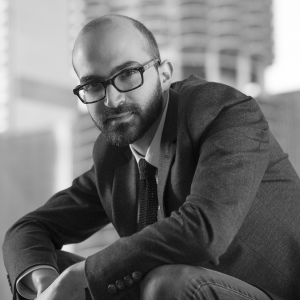A Placemaking Journal
New Housing Finance (Mostly) Without the Feds
In the weeks before the Congress for the New Urbanism conference in Savannah, GA, May 15-19, we’re presenting interviews with experts contributing to a day-long exploration of “Affordability: The Intersection of Everything.” A three-hour morning forum on Thursday, May 17, kicks off the discussion, followed by two break-out sessions that afternoon. Below is an interview with Ben Schulman, communications director of the crowdsourcing platform Small Change. He’ll be a panelist in the afternoon session, “New Housing Finance (Mostly) Without the Feds,” at 4 p.m.
Q: There’s obviously a lack of clarity when and if dependable federal support for affordable housing will resume. Developers, governments and non-profits on the local and regional levels are looking for alternative finance strategies. Are crowd-sourcing approaches among those showing promise? How do they work?

A: As new urbanists know, many federal programs — such as HUD 221(d)4, to name one — impede impactful urbanist development. While the current administration might be garishly glaring in its lack of support for housing programs, it potentially portends an opportunity. To use Bruce Katz’s term, a “new localism” is emerging, and communities — be they drawn at the regional or the municipal level — are looking for ways to develop that’s context-appropriate with community buy-in.
Crowdfunding is a tool that allows that type of inclusive, accessible and equitable development to happen. Equity crowdfunding works as a mechanism to connect individual investors directly with developers who are working in their neighborhoods. It brings the community into the community development process by allowing them to invest.
Q: Examples from around the country? What do successful ones have in common?
A: There’s no one standard of how equity crowdfunding can be deployed. As the nascent industry continues to grow, it’s been fascinating to see the orientation of different platforms operating.
Small Change has a model that applies nationally across residential, commercial or mixed sectors. We’ve completed crowdfunding raises, typically within three months from the launch of a campaign, ranging from $95,000 to $300,000 for projects in Pittsburgh, New Orleans, Los Angeles, and D.C. These projects have been anything from a rehabilitation of an affordable housing development — now with one of the country’s largest residential solar panel installations — to a conversion of a historic commercial building into the flagship location for a co-working hub. We’ll be launching more projects soon in Los Angeles, Baltimore, Philadelphia and further afield. And we have a clear mission. We want to make change, help to transform cities all around the country. Our Change Index keeps us honest. We use it to make sure that important features, such as affordability, are part of the equation.
Other platforms are different. Rabble is place-based, focused on capitalizing projects in Detroit. There’s a fund, Impact Housing, issued under a regulation called Regulation A, that acts like an affordable housing REIT that people can invest in. A platform called American Homeowner Preservation also uses Reg A where people invest in a fund that acquires underperforming mortgages, while the platform negotiates to keep vulnerable residents in their homes. It essentially acts as a neighborhood stabilization program. Some platforms are driven more so by the pure potential for financial returns.
Q: What has to be in place at the local level to increase the likelihood that a crowd-sourcing strategy will work?
A compelling project can only go so far if it doesn’t have a compelling story behind it and if the numbers don’t work. The crowdfunding platform and the issuer behind the raise need to have the ability to broadcast the story of their project and illustrate the impact the project will have, and the developer must be able to implement the project.
Q: How does a community or an affordable housing coalition get the ball rolling?
A: At Small Change, we have a pretty direct process for on-boarding a project. Come to us with your plans and idea and tell us what you’re looking to do. We’ll want to make sure that your project meets our mission by testing it on our Change Index, but if it does, we’ll work hard to help you get your offering live.
Q: If you ask new urbanist practitioners about ways they — and the Congress for the New Urbanism — might address affordability/equity/inclusion, many will say they’re already doing it by designing and building in ways that spread opportunity and livability to broad cross-sections of populations. But most would say they’re impatient with the speed and scale of those efforts. What are new urbanists missing about this new sense of urgency in communities everywhere? Are there fundamental assumptions that must change? Are there natural partners for new urbanists’ ambitions to improve affordability that are being ignored? What’s in the way of accomplishing more faster?
A: New urbanists have often been at the vanguard of pushing the language of planning, design and development forward in a more equitable direction. The movement has been incredibly successful in this. The public language used when discussing development now is almost always an inclusive one.
But though the rhetoric of design and development has evolved, many of the tools available to build buildings and create complete communities remain stuck in the past. The result is a disconnect — between what people hear and expect from development and what they see. The lack of tools available to drive the change we talk about means that change cannot occur.
Bringing together people in an exchange of ideas — at events like the CNU Congress, or something Small Change has convened before called the New Neighborhood Building Toolkit around new, emerging tools like crowdfunding can catch the rhetoric up to place-making.
–Ben Brown
If PlaceShakers is our soapbox, our Facebook page is where we step down, grab a drink and enjoy a little conversation. Looking for a heads-up on the latest community-building news and perspective from around the web? Click through and “Like” us and we’ll keep you in the loop.






